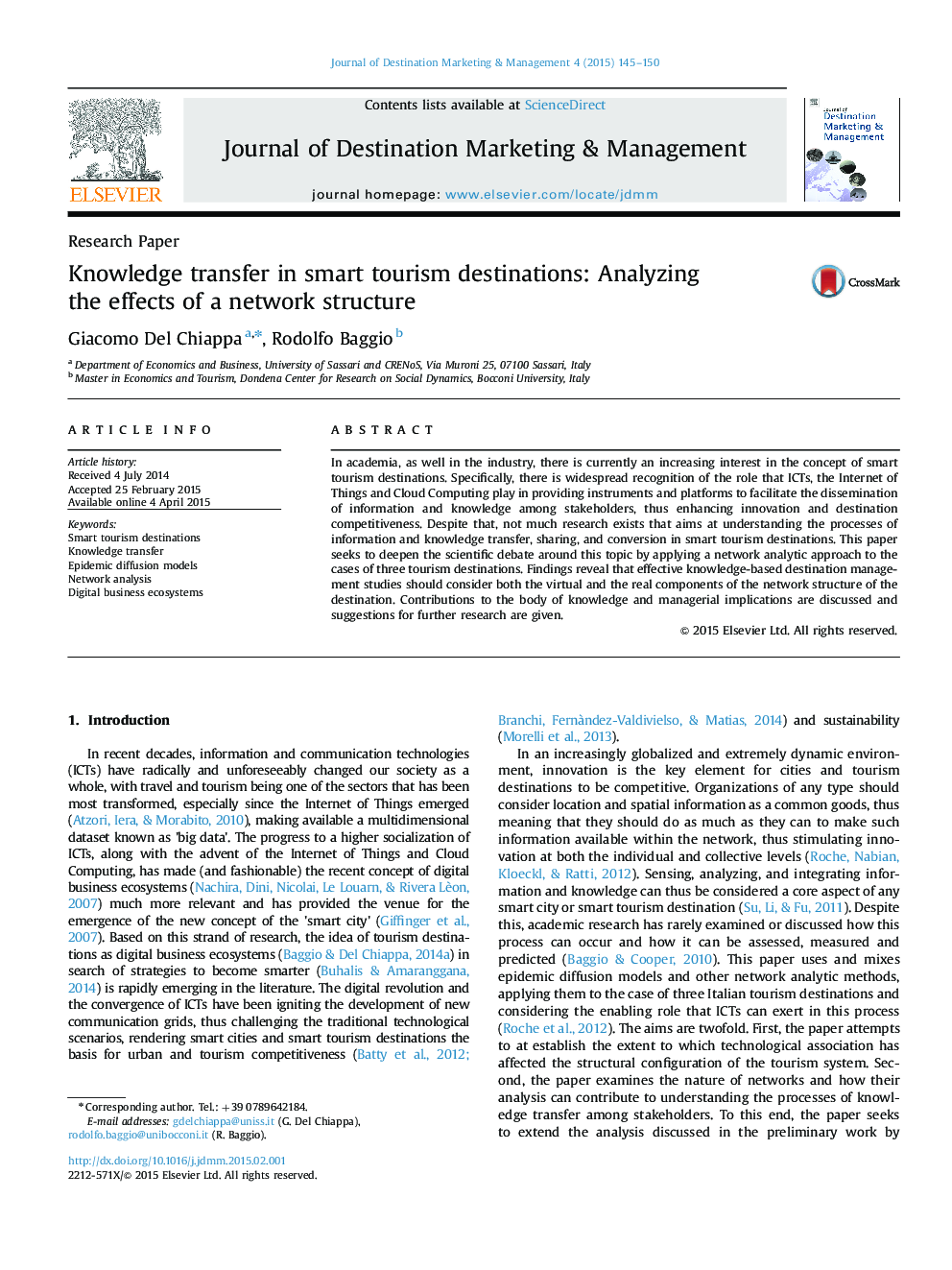| Article ID | Journal | Published Year | Pages | File Type |
|---|---|---|---|---|
| 1011038 | Journal of Destination Marketing & Management | 2015 | 6 Pages |
•A smart tourism destination is a combined network of stakeholders and their technological representations (websites).•Using three Italian destinations the analysis reveals the strict structural relationship of the two components.•A spectral analysis also shows the importance of considering an integrated assembly of real and virtual elements when studying knowledge diffusion and opinion formation.•Smart tourism destination ecosystems turn out to be more efficient and effective with regards to these processes.•Implications are discussed and suggestions for further research are given.
In academia, as well in the industry, there is currently an increasing interest in the concept of smart tourism destinations. Specifically, there is widespread recognition of the role that ICTs, the Internet of Things and Cloud Computing play in providing instruments and platforms to facilitate the dissemination of information and knowledge among stakeholders, thus enhancing innovation and destination competitiveness. Despite that, not much research exists that aims at understanding the processes of information and knowledge transfer, sharing, and conversion in smart tourism destinations. This paper seeks to deepen the scientific debate around this topic by applying a network analytic approach to the cases of three tourism destinations. Findings reveal that effective knowledge-based destination management studies should consider both the virtual and the real components of the network structure of the destination. Contributions to the body of knowledge and managerial implications are discussed and suggestions for further research are given.
